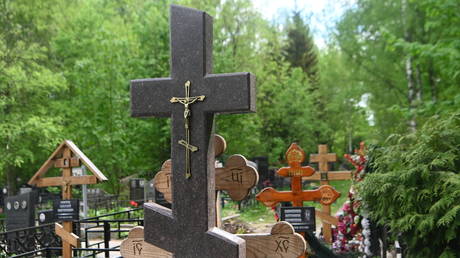
Newest Ukraine-related measures include keeping deceased individuals on the blacklist
The European Union intends to continue freezing the assets of blacklisted Russian nationals even if they have died, the bloc announced on Monday as part of the 12th package of sanctions against Moscow.
Brussels first imposed the embargo in 2022, citing the Russian military operation in Ukraine. Headlining the newest round of sanctions is the ban on importing Russian diamonds and certain metals, as well as export of dual-use technologies.
One of the measures, however, included the “possibility to keep deceased persons on the asset freeze list, in order to prevent the freezing measure from potentially being undermined,” according to the European Commission.
Continued sanctions against dead people are a move without precedent, according to the TASS news agency.
The EU also announced it would freeze the assets of more than 140 additional Russian nationals and entities, if any could be found in its territory. Members of the bloc were told to “proactively trace assets of listed persons” to ensure there was no “breach or circumvention” of the embargo.
Should any Russian nationals benefit from the “forced transfer of ownership or control” of EU companies’ subsidiaries in Russia, they too will find themselves sanctioned by the bloc, the European Commission said.
“This will ensure that no one profits from the losses that EU companies face when their subsidiaries are forcibly acquired by Russian owners/management,” according to the body.
Western companies that sold their Russian operations since the embargo began have lost a combined $103 billion and paid at least $1.25 billion in exit taxes to the Russian state, the New York Times reported on Sunday.




